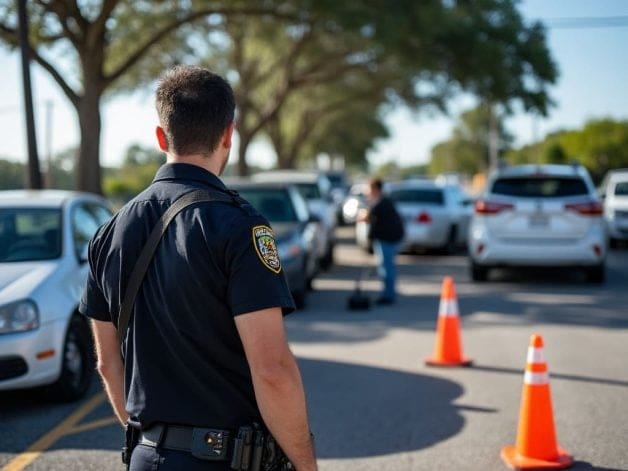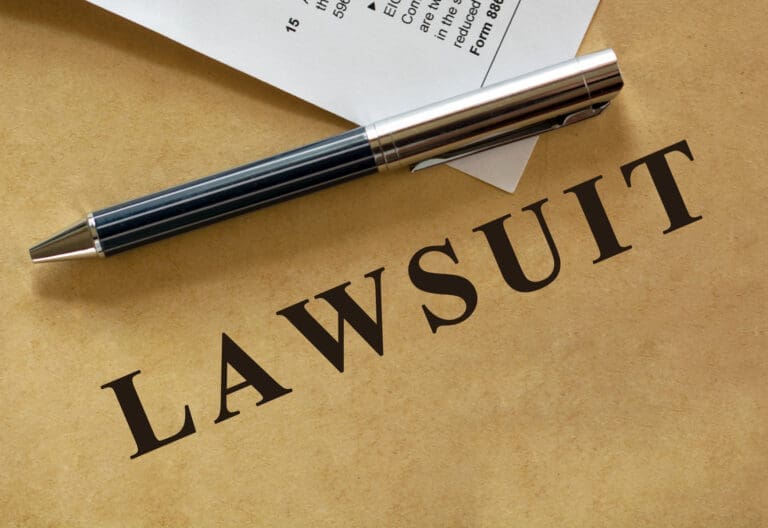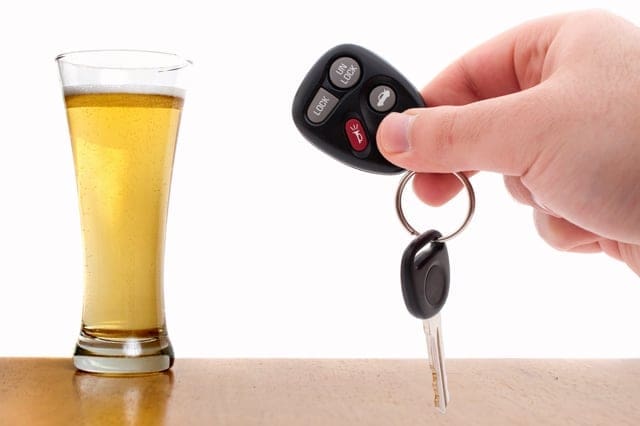Understanding your legal rights during a traffic stop, particularly in the context of Cargos por DUI, is critical for Florida drivers. One of the most frequently asked questions revolves around whether you can refuse a alcoholímetro o field sobriety test in Florida and what the potential consequences of refusal might be. In this article, we will explore in detail the implicaciones jurídicas of refusing these tests and what this means for your rights, license, and potential DUI defense strategy. As DUI laws can be complex, understanding Florida’s legal framework, including the implied consent law, is essential for anyone who finds themselves in this situation..
Florida’s Implied Consent Law
In Florida, like in many other states, drivers implicitly agree to submit to certain tests when they obtain their driver’s license. This agreement is governed by Florida’s Implied Consent Law. Under this law, any person who accepts the privilege of driving on Florida’s roads agrees to submit to a chemical test if they are lawfully arrested for DUI. This includes tests such as the alcoholímetro and chemical analysis of blood or urine.
Breathalyzer refusal comes with significant consequences due to this law. While you have the right to refuse the test, that decision is not without serious repercussions. One key aspect of the implied consent law is that refusal can automatically lead to the suspension of your driver’s license, even if you are not ultimately convicted of DUI. Refusing to submit to a field sobriety test may also be used against you in court, which can complicate your legal defense if charges are filed.
The first time you refuse a alcoholímetro test, your driver’s license could be suspended for up to one year. A second refusal may result in a longer suspension and possibly even criminal charges for repeat refusal. It’s important to note that, while you can refuse the test, DUI attorneys often advise against it because of these immediate legal consequences.
Can You Refuse a Field Sobriety Test?
Field sobriety tests are physical and mental exercises that law enforcement officers use to determine if a person is impaired. These tests include the walk-and-turn testEl one-leg standy el horizontal gaze nystagmus test. While the officer conducting the tests will look for signs of intoxication or impairment, these tests can be subjective and are often challenged in court.
In Florida, you are legally permitted to refuse a field sobriety test without facing direct penalties like those associated with breathalyzer refusals. However, refusing the test does not come without consequences. If you refuse, law enforcement officers can still arrest you based on other evidence, such as erratic driving or the smell of alcohol. Additionally, your refusal to take the test can be presented in court as evidence of your consciousness of guilt, which can complicate your defense.
It’s crucial to understand that while the field sobriety test is not legally required, the implied consent law specifically covers chemical tests (breath, blood, or urine), and refusing these tests will have immediate consequences for your driving privileges.
Legal Consequences of Refusing a Breathalyzer
Refusing to take a prueba de alcoholemia in Florida comes with significant penalties, even if you are not convicted of DUI. En Florida Department of Highway Safety and Motor Vehicles (DHSMV) is authorized to suspend your driver’s license immediately after a refusal. The first refusal leads to a one-year suspension, while a second refusal carries an 18-month suspension and could result in a misdemeanor criminal charge.
The refusal to take a alcoholímetro can also be used as evidence in court. Prosecutors may argue that your refusal indicates a guilty conscience or fear that you would have failed the test. Even though refusing a breathalyzer does not guarantee that you won’t be convicted of DUI, it often results in harsher penalties due to the license suspension and potential jail time for repeated refusals.
One aspect of breathalyzer refusal that many drivers fail to understand is that it does not eliminate the possibility of conviction. Prosecutors can still build a case against you based on other evidence, including the field sobriety test, police officer observations, and any other circumstantial evidence.
How Refusal Affects Your DUI Case
When you refuse a alcoholímetro o field sobriety test in Florida, you complicate your defense strategy. While a refusal may seem like a way to avoid incriminating yourself, it can actually make your case more difficult. DUI attorneys often face challenges in defending clients who have refused these tests because it limits the amount of evidence they can use to dispute the Cargos por DUI.
However, there are situations where refusing might benefit the defendant. If the breathalyzer equipment was not calibrated correctly or if the officer lacked reasonable suspicion to pull you over, your attorney could argue that the refusal should not be held against you. Similarly, if the pruebas de alcoholemia sobre el terreno were improperly administered or if there were extenuating circumstances affecting your performance (such as medical conditions), this could be a crucial part of your defense.
In some cases, DUI attorneys may focus on challenging the legality of the traffic stop or the arrest itself. For example, if the officer did not have probable cause to pull you over, any evidence obtained—including the refusal to take a test—may be thrown out.
Can Refusal Help You Avoid a DUI Conviction?
Many drivers believe that refusing a alcoholímetro o sobriety test will help them avoid a DUI conviction. While refusal might prevent the prosecution from having a direct measurement of your blood alcohol content (BAC), it doesn’t eliminate other forms of evidence that can be used against you. Refusal can actually complicate your case by leading to a license suspension and creating the appearance that you have something to hide.
Florida law allows police officers to use other observations to build a case against you. For example, an officer may testify about your driving behavior, slurred speech, red eyes, or the smell of alcohol—all of which can be used to support a DUI charge. Refusal does not make you immune to prosecution, and in some cases, it could lead to harsher penalties.
That said, each case is unique, and a DUI attorney can help you weigh the risks and benefits of refusing a alcoholímetro o sobriety test based on your specific situation. Your attorney will consider all aspects of your case, including the circumstances of the stop, the officer’s behavior, and the quality of the evidence collected.
Legal Defense Strategies for DUI Refusals
If you have refused a alcoholímetro o field sobriety test in Florida, it’s crucial to hire an experienced DUI attorney who understands how to navigate the complexities of refusal cases. One common defense is to challenge the legality of the traffic stop. If the officer did not have probable cause to pull you over, any evidence obtained during the stop may be inadmissible, including the refusal.
Another strategy is to question the credibility of the field sobriety test o breathalyzer equipment. If the equipment was not calibrated or maintained properly, your attorney may argue that the test results would have been inaccurate even if you had complied. Additionally, the officer’s training and experience in administering the tests can be called into question.
Su DUI attorney may also explore alternative explanations for your refusal. For example, if you refused the alcoholímetro because you were confused, scared, or felt that your rights were being violated, this could potentially mitigate the consequences of the refusal. In some cases, attorneys argue that a medical condition affected their client’s ability to perform field sobriety tests, which can help explain poor performance on these tests or justify a refusal.
Potential Penalties for DUI Convictions After a Refusal
If you are convicted of DUI after refusing a alcoholímetro o field sobriety test, the penalties can be severe. Florida has some of the strictest DUI penalties in the nation, and the courts are not lenient when it comes to drivers who refuse tests. Penalties for a first-time DUI conviction in Florida can include:
- Fines ranging from $500 to $1,000
- Imprisonment for up to six months
- Mandatory servicio comunitario
- Libertad condicional
- Installation of an ignition interlock device on your vehicle
If you refused a alcoholímetro o sobriety test, these penalties could be enhanced. For example, a second refusal can lead to an additional charge for refusal, which carries its own penalties, including jail time. Repeat offenders are likely to face even harsher consequences, including longer jail sentences and higher fines.
Additionally, if you refused a test and were convicted of DUI, your driver’s license may be suspended for a longer period. The suspension could range from six months to 18 months, depending on the circumstances of the case and your driving record.
Impact on Employment and Personal Life
A DUI conviction in Florida can have a significant impact on both your personal and professional life, especially if you refused a alcoholímetro o field sobriety test. Many employers, especially those in industries like transportation or public safety, require their employees to maintain a valid driver’s license. If your license is suspended due to a refusal or DUI conviction, you could face job loss or difficulty finding future employment.
In some cases, a DUI arrest and conviction can also affect your ability to secure housing, financial loans, or even higher education. Background checks may reveal your conviction, and certain industries, like education and law enforcement, may be reluctant to hire someone with a criminal record, especially one related to alcohol or drug offenses.
In addition to these tangible consequences, the personal and social stigma associated with a DUI conviction can also have lasting effects. Relationships with friends and family may suffer, and the financial strain of fines, legal fees, and insurance rate increases can put significant pressure on your personal life.
Seeking Legal Assistance for DUI Refusal Cases
If you have been arrested for DUI and refused a alcoholímetro o field sobriety test, seeking immediate legal assistance is crucial. An experienced DUI attorney can help you understand the charges against you, explore possible defenses, and work toward reducing the penalties you face. Every DUI case is unique, and the circumstances of your arrest, including whether you refused a test, will impact your defense strategy.
Your attorney will likely begin by reviewing the details of your traffic stop, including whether the officer had probable cause to pull you over. They will also investigate whether the breathalyzer or sobriety tests were administered correctly, and whether there were any procedural errors that could weaken the prosecution’s case.
In some cases, DUI attorneys may be able to negotiate with the prosecutor to reduce your charges or penalties, especially if this is your first offense or if there were extenuating circumstances surrounding your refusal. This is why hiring a qualified attorney is essential if you are facing Cargos por DUI.
Conclusión
Refusing a alcoholímetro o field sobriety test in Florida is a serious decision with potentially long-lasting consequences. While you have the right to refuse these tests, it is important to understand the legal implications of doing so. Florida’s implied consent law means that refusing a breathalyzer can lead to an automatic license suspension and may complicate your defense if you are charged with DUI. Although refusing a field sobriety test may not result in an automatic penalty, it can still be used against you in court.
The penalties for refusing a alcoholímetro or being convicted of DUI in Florida are severe, and they can have a lasting impact on your personal and professional life. It is always recommended to seek legal assistance from an experienced DUI attorney if you are facing charges related to DUI or refusal of these tests. By understanding your rights and the consecuencias jurídicas of refusal, you can make more informed decisions during a traffic stop and work with your attorney to develop a strong defense.









